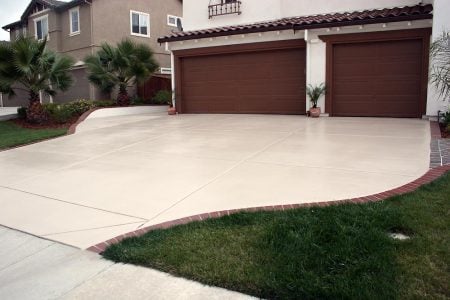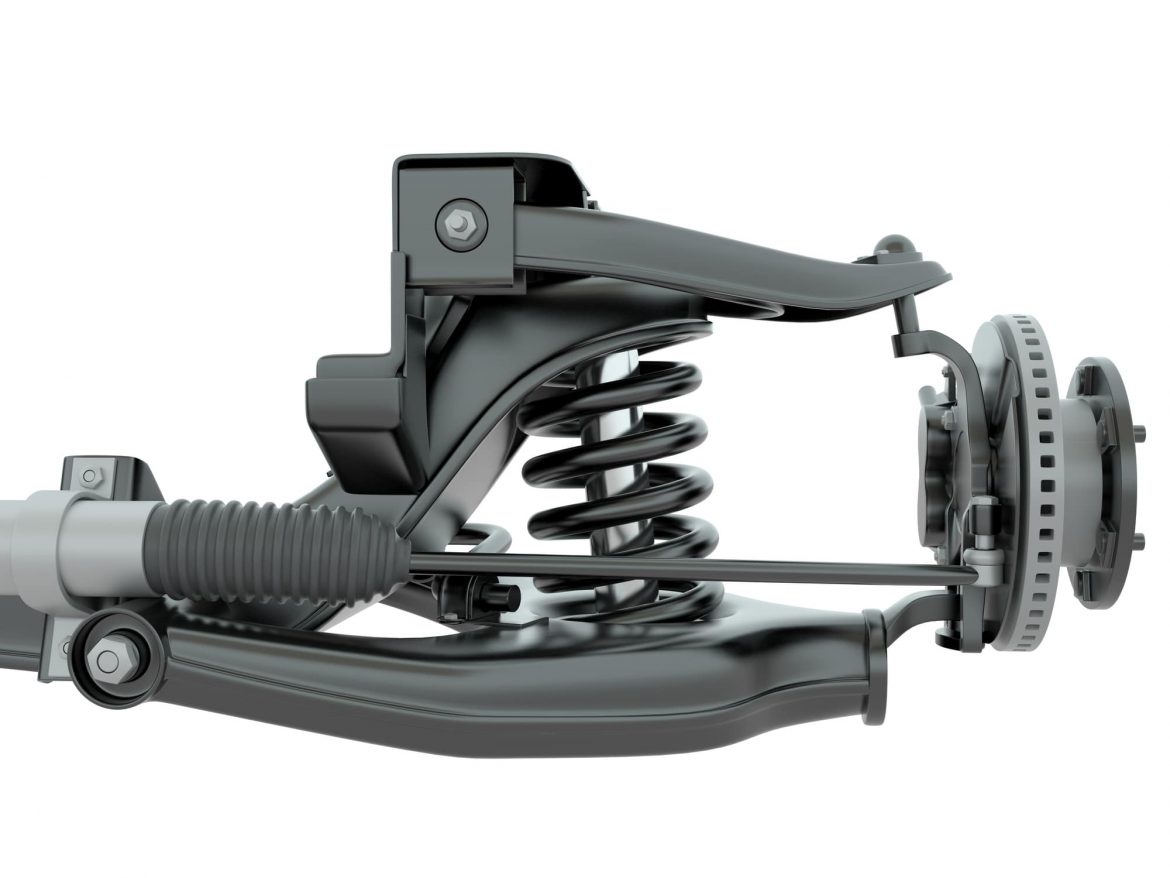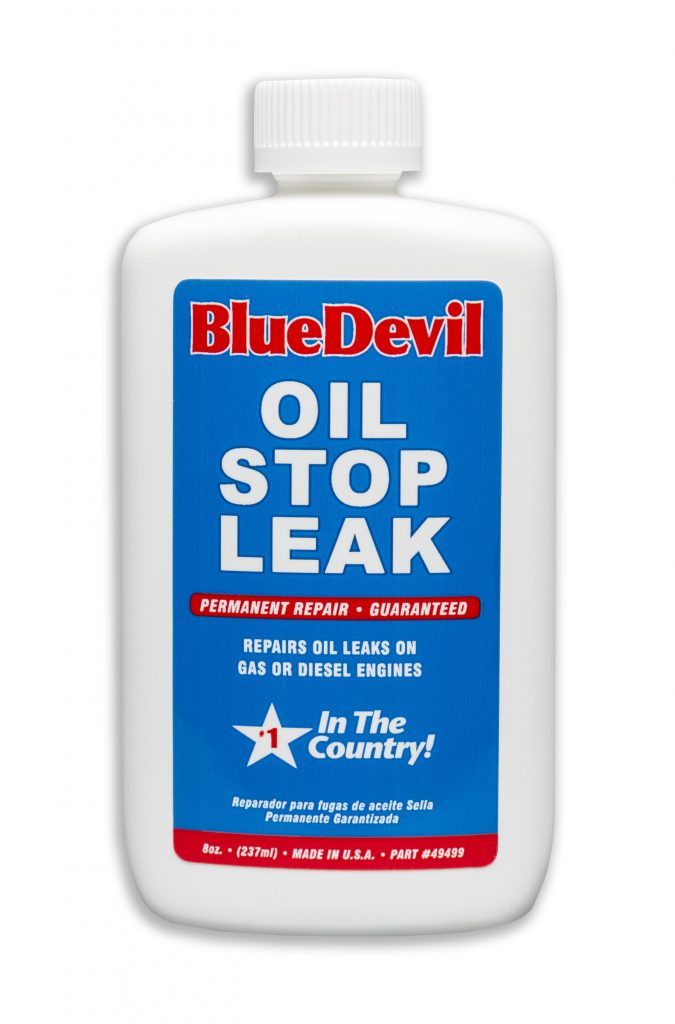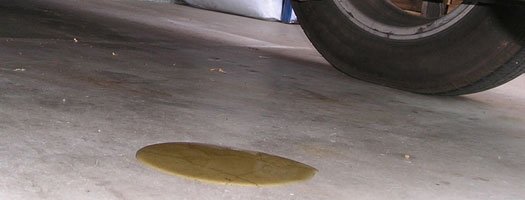Oil leaks can make an annoying mess. Not only is oil difficult to remove from most things it is going to leak onto, but since you leave your vehicle in slightly different places each time you park it, the stain is likely spread over a pretty wide area. Oil stains are not only ugly, but can be a slip hazard, a violation of certain home owners association restrictions and make an even bigger mess as you pick up the oil on your shoes and clothes and track it into your home or your vehicle.
How do I clean up a new oil leak?
Like with any spill, the sooner you can get to cleaning it up, the better chance you will have at completely cleaning it up without a stain. Most garages and driveways are made from either concrete or asphalt, both of which are slightly porous surfaces. That means the longer the oil is there, the further it will soak in making it even more difficult to remove. If you catch the oil while it is still fresh, you can start by wiping up any access oil still on the surface with a rag or shop towel. In order to try and draw the still wet oil that has soaked into the surface of your driveway or garage, consider keeping an absorbent powder on hand. These absorbents when poured over an oil spill can help draw the oil back up out of the concrete or asphalt removing the stain. Another alternative that people have used for years is putting down kitty litter as it is a cheap alternative that is still absorbent. If you use powdered absorbents, remember once used they are full of oil and should be disposed of properly.
How do I clean up an old oil leak?
If you have old oil stains that have dried or at least soaked deeply into your floor or driveway you need to adjust your cleaning approach. In the case of old oil stains they are literally deeper in the concrete or asphalt and dried. The oil needs to be loosened then drawn back out of the pours in your floor or driveway. There are many different products that can help, but a great way to start is to get some type of powdered soap, such as a powdered laundry detergent, trisodium phosphate (TSP), or powdered bleach scrubbing agent. You can try applying the powder dry and sweeping it into the concrete, or wetting it slightly to form a paste and spreading it over the stain. The longer you can let the cleaner sit, the better the results should be. When it has sat as long as possible (up to a few days) you can sweep away the powder or wash down the area. Anytime you are using powerful chemicals, make sure to use the proper protective equipment. You can also try using a liquid cleaner to remove your old oil stains. Muriatic acid has been used for decades to clean just about anything from concrete, or you can also try a liquid based decreasing agent, such as brake cleaner or lacquer thinner.
 Once you have a nice clean garage and driveway you want to make sure it stays good and clean. The best way to do that is to stop the oil leak in your vehicle. Car engines start to leak oil overtime as the seals and gaskets get older, worn or shrunken. No matter where the oil leak is in your vehicle BlueDevil can seal it without you lifting a wrench. BlueDevil Oil Stop Leak is an oil leak sealant guaranteed to stop your oil leak in your vehicle. BlueDevil Oil Stop Leak can be added straight to your crank case oil and left there until your next oil change. BlueDevil products are non-particulate oil sealers that will not clog or harm your engine and will actually restore your old seals and gaskets to their original size and shape sealing your leak and make sure your garage and driveway stay stain free.
Once you have a nice clean garage and driveway you want to make sure it stays good and clean. The best way to do that is to stop the oil leak in your vehicle. Car engines start to leak oil overtime as the seals and gaskets get older, worn or shrunken. No matter where the oil leak is in your vehicle BlueDevil can seal it without you lifting a wrench. BlueDevil Oil Stop Leak is an oil leak sealant guaranteed to stop your oil leak in your vehicle. BlueDevil Oil Stop Leak can be added straight to your crank case oil and left there until your next oil change. BlueDevil products are non-particulate oil sealers that will not clog or harm your engine and will actually restore your old seals and gaskets to their original size and shape sealing your leak and make sure your garage and driveway stay stain free.
BlueDevil Products can be found on Amazon.com or at AutoZone, Advance Auto Parts, O’Reilly Auto Parts, NAPA, and other major auto parts retailers.
Related Articles



